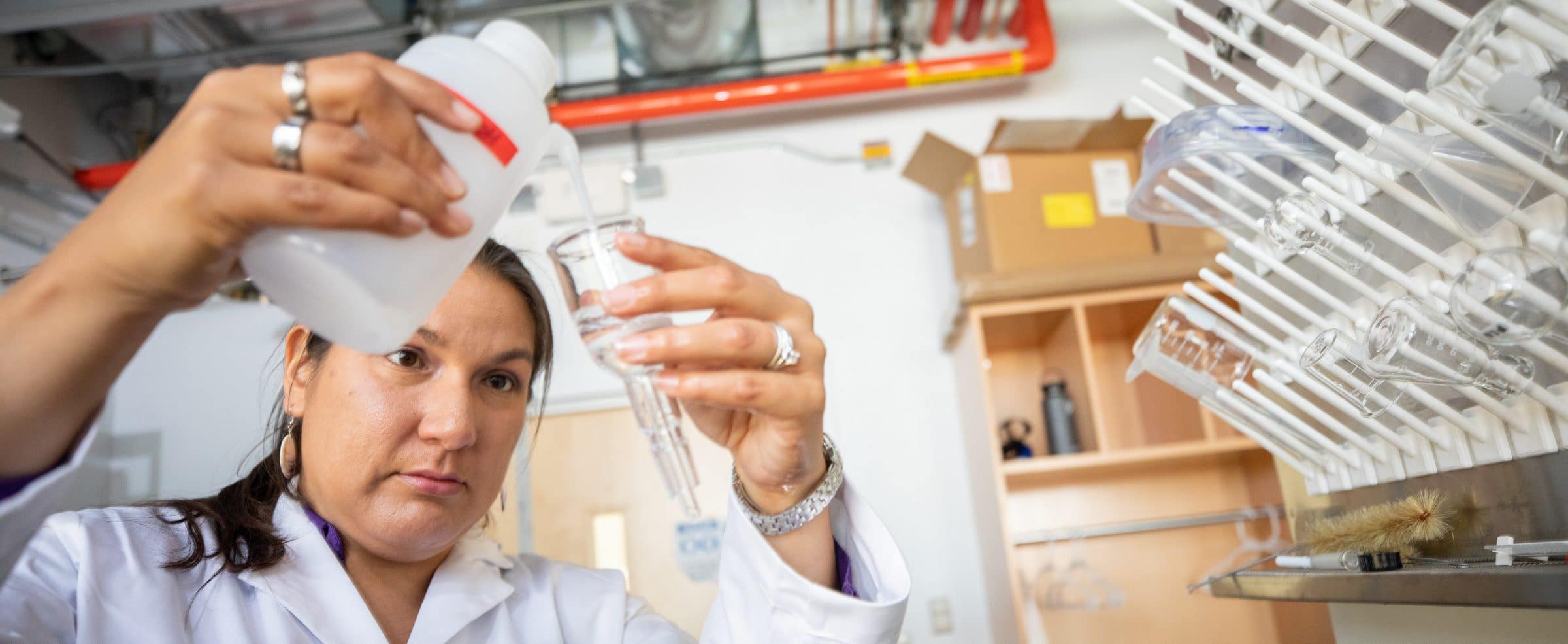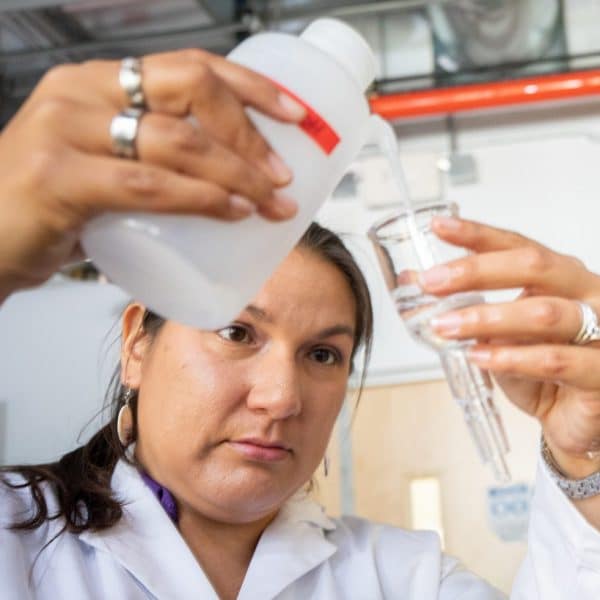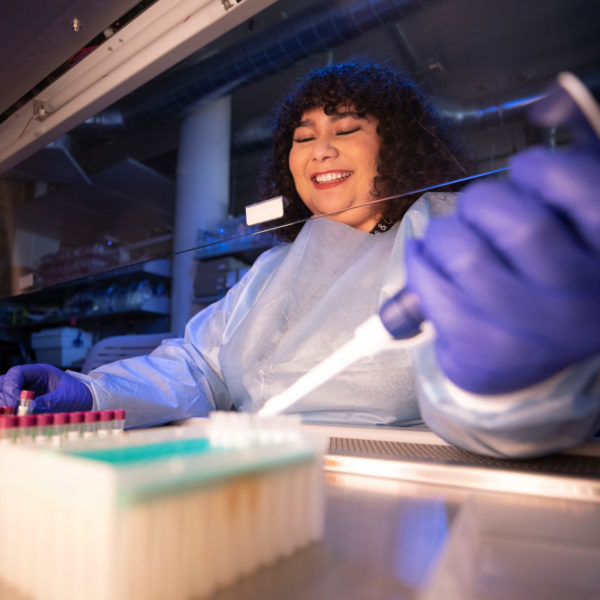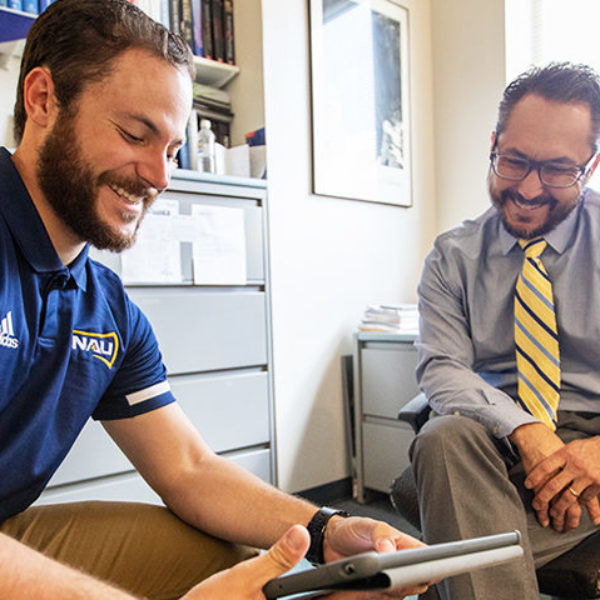As the second leading cause of death worldwide, cancer remains one of the defining challenges of our time.
Today’s greatest minds and boldest thinkers are working tirelessly to combat cancer, improve the live of those it affects, and bring us all closer to a cure. We know just how meaningful that work is because it’s taking place right here at NAU, in our state-of-the-art labs and in the communities we serve.
NAU takes a multidisciplinary approach to combating cancer on all fronts, through our work in the fields of public health, health sciences, biology, and chemistry. We’re always looking for dedicated, talented students to help us move closer to a world where cancer is nothing to fear.
- NAU is one of the leading institutions researching incidences of cancer among underserved communities, particularly the Native American tribes of the Southwest. As key members of the Partnership for Native American Cancer Prevention (NACP), our faculty and student researchers collaborate with Native communities and other top scientists to understand the disproportionately high cancer rates among these populations—and to decrease these rates through new methods of prevention and health promotion.
- Undergraduate students play a critical role in NAU’s cancer research efforts. Through internships with our top faculty researchers and related initiatives, students have the opportunity to conduct hands-on cancer research early in their academic careers, both in the lab and in the field.
- NAU researchers have led the way in the field of exercise oncology, a practice that uses physical activity to improve quality of life for cancer patients and to decrease the likelihood of healthy people developing the disease. Our researchers contributed to the American College of Sports Medicine’s updated exercise oncology guidelines in late 2019, helping to improve the lives of those currently living with cancer and mitigating its effects on those who are now cancer-free.
- Researchers and their teams of students are working to improve cancer treatments currently available, and to break ground with new ones. Whether they are studying zebrafish genetics in search of melanoma treatments or researching natural killer (NK) cells to address renal and colorectal cancers, NAU scientists are at the cutting edge of oncology research—giving our undergraduate students the opportunity to participate in hands-on learning experiences.
Join us in the fight
NAU researchers from many different disciplines have come together to beat cancer. If you’re ready to make your own mark, NAU is the perfect place for you to arm yourself with the skills and knowledge you’ll need to improve public health and save lives.
UNDERSTANDING THE THREAT
- Arizona recorded about 37,490 new cases of cancer and 12,470 cancer deaths in 2019
- An estimated 1.8 million new cancer cases will be diagnosed nationwide in 2020
- The five most prevalent types of cancer in Arizona are:
- Breast
- Lung and bronchus
- Colorectum
- Prostate
- Melanoma
- Cancer is the second-leading cause of death among Native American populations
- Native American communities are more likely to be diagnosed with less common cancers such as:
- Kidney
- Stomach
- Liver
- Gallbladder
- Native Americans have the highest kidney cancer incidence and death rates of any population in the U.S.
- Native American communities are more likely to be diagnosed with less common cancers such as:
- People with a lower socioeconomic status have higher cancer death rates, regardless of other demographic factors








